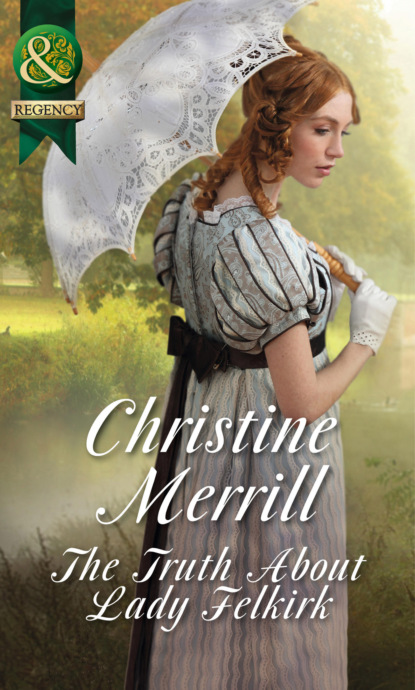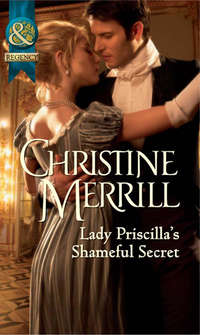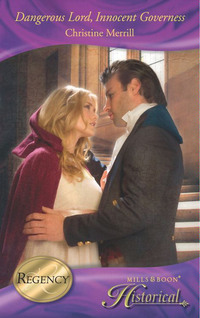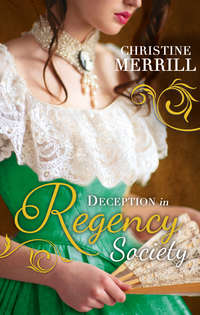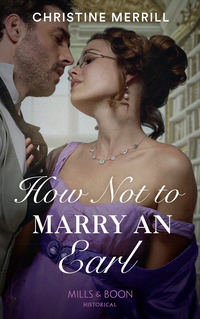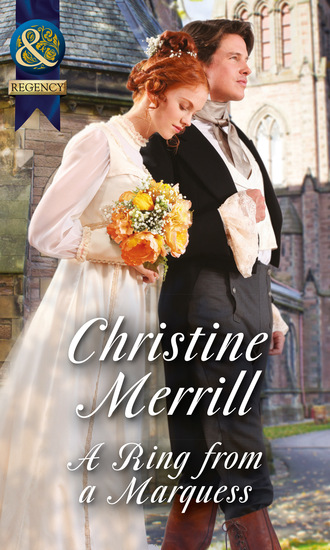
Полная версия
A Ring From A Marquess

He closed the last inch between them and their lips met.
The kiss was exquisite. Not cherries or strawberries. They were both too sweet. Blackcurrant, perhaps. Tart and as complex as wine.
How long had he been dreaming of taking her, right here on the white velvet divan? His fantasies had been innocent compared to this. He had not imagined this helpless feeling of abandon as her body touched his. She fitted perfectly against him, the curve of her hip in his hand. He ran his hand over the bare skin of her shoulder, circling to the back of her neck so that he might press her mouth to his. Such a delicate nape, fringed with the soft hair he had longed to stroke. He rubbed it with his knuckle and her lips opened, eager for him.
One kiss and she was driving him mad. He wanted to ravish her with his mouth, claim her body as his own.
If he felt so about an innocent touch, how would he survive a more intimate one?
AUTHOR NOTE
I often come up with interesting titbits of information when writing my stories. A Ring from a Marquess, with its Bath setting and its female shop owner, was brimming with details—some of which I couldn’t use.
Unfortunately Thomas Loggan, who died in 1788, was too early for this story. Thomas was appointed ‘Dwarf to the Prince and Princess of Wales’—a curious title, but not his most interesting claim to fame. He was also a designer and painter of fans, doing much of his work in Bath, and often painting himself into the pictures that decorated his work.
An even earlier story that I could not use was of the hazards of communal bathing in the famous Bath waters. In 1734 you would not have wanted to share with the Duchess of Norfolk. She was a rather large woman, and her desire that the bath be filled to her chin put the smaller ladies around her at risk of drowning.
And now I hope you enjoy A Ring from a Marquess. And if you happen to be reading in the tub keep your chin up …
A Ring from a Marquess
Christine Merrill

CHRISTINE MERRILL lives on a farm in Wisconsin, USA, with her husband, two sons, and too many pets—all of whom would like her to get off of the computer so they can check their e-mail. She has worked by turns in theatre costuming and as a librarian. Writing historical romance combines her love of good stories and fancy dress with her ability to stare out of the window and make stuff up.
MILLS & BOON
Before you start reading, why not sign up?
Thank you for downloading this Mills & Boon book. If you want to hear about exclusive discounts, special offers and competitions, sign up to our email newsletter today!
SIGN ME UP!
Or simply visit
signup.millsandboon.co.uk
Mills & Boon emails are completely free to receive and you can unsubscribe at any time via the link in any email we send you.
To Melanie Hilton, for some fabulous information about Bath.
Bowing, as always, to your superior knowledge.
Contents
Cover
Introduction
Author Note
Title Page
About the Author
Dedication
Chapter One
Chapter Two
Chapter Three
Chapter Four
Chapter Five
Chapter Six
Chapter Seven
Chapter Eight
Chapter Nine
Chapter Ten
Chapter Eleven
Chapter Twelve
Chapter Thirteen
Chapter Fourteen
Chapter Fifteen
Chapter Sixteen
Chapter Seventeen
Chapter Eighteen
Chapter Nineteen
Chapter Twenty
Chapter Twenty-One
Chapter Twenty-Two
Extract
Copyright
Chapter One
Margot de Bryun ran a professional eye over the private salon that had once been the back room of Montague and de Bryun Fine Jewellery, then paused to plump the velvet pillows on the chaise. The old shop had been a rather stuffy place. But now that she was in charge and the late and unlamented Mr Montague’s name had been scrubbed from the gilt on the windows, she felt that the design was cheerfully elegant. The walls were white and the columns on either side of the door were mirrored. In the main room, the gold and gems lay on fields of white velvet and carefully ruched blue silk, in cases of the cleanest, clearest glass.
Once she was sure the stock was in order, she checked each shop clerk to make sure their uniforms were spotless. The female employees wore pale-blue gowns and the gentlemen a not-too-sombre midnight blue. She inspected them each morning, to be sure that no bow was crooked, no button unpolished, and no pin in a pinafore out of line. She required nothing less than perfection.
She took great care with her own appearance as well, making sure that it did not distract from the wares on display. It was vain of her to dote on it, but she shared her sister’s fine looks. Until her recent marriage, Justine’s beauty had brought her nothing but misery and Margot wanted no share of that. Better to dress simply than to attract the attention of alleged gentlemen who thought a slip on the shoulder would be preferable to an honest living in trade.
But neither did she want to appear dowdy. She avoided bright gowns and excessive jewellery in favour of the same simplicity that decorated the shop. Today’s gown was a muslin as white as the walls with a gold ribbon at the waist to match the amber cross worn on a thin gold chain around her neck.
Such aloof elegance inspired awe from the customers and not the discomfort gentlemen sometimes felt in surroundings they deemed overly feminine. They left de Bryun’s Fine Jewellery convinced that they had gone no further than the anteroom of the female realm to seek advice on those strange creatures from an oracle. They trusted that the luminous Miss de Bryun would know better than any other jeweller in Bath what their wives, daughters, and even their ladybirds might want in way of a gift. And it amused Margot to be treated as a high priestess of human ornament.
It was good for business as well. When she had taken over the shop she had not been able to make head or tail of the books that Mr Montague had kept. She suspected that the profits had been meagre. The majority of them must have gone into his own pockets, for she and Justine had gained little more than modest allowances when he had been in charge.
But now that the business was totally in control of the de Bryun sisters, the figures in the ledger showed a careful line of sales adding to a tidy profit. Her sister, who had sworn that there were nothing but bad memories in it for her, could not help but smile at the success Margot had made of their father’s business. Justine might not need the fat cheque Margot sent her each quarter, but it was concrete proof that her little sister was more than capable of handing the place on her own,
Once she was sure all was in order, Margot gave a nod of approval to the head clerk, Jasper, who unlocked the door and turned the sign in the window to indicate they were open for business. Only a few minutes passed before the brass bell on the door jingled and one of her best customers crossed the threshold.
And, as it always did when the Marquess of Fanworth entered her shop, Margot’s breath caught in her throat. He was probably going to make another purchase for one of his many mistresses. There must be several Cyprians fawning over him. What single woman could wear as much jewellery as he seemed to buy? Since arriving in Bath, he’d visited her shop at least once a week. Sometimes, it was twice or more.
When such a smart gentleman took a liking to her humble business, it brought other patrons with equally full pockets. That was the main reason she took such care to treat him well and stay in his favour. He was good for business.
Or so she told herself.
Who could blame her heart for fluttering, at least a little, upon his arrival? Lord Fanworth was a most handsome man. In her opinion, he was the handsomest man in Bath, perhaps in all of England. His chestnut hair gleamed in the morning sunlight, even as his broad shoulders blocked the beams that came to her from the open door.
But it was so much more than his looks or his patronage that made him her favourite customer. He did not buy a bijou and hurry away. He lingered over each transaction, sipping wine and chatting with her in the private salon reserved for her most important customers.
When they talked, it was as if there was no difference in their ranks. To speak with him made her feel as important as one of the great ladies who sometimes frequented the shop, dithering over the baubles in the glass cases that lined the walls of the main room. In truth, she felt even more important than that. They might speak briefly with Lord Fanworth in the crush of the pump room or the assembly rooms. But each time he visited de Bryun’s she had his full attention for an hour, or sometimes more. He treated her like a friend. And she had far too few of those.
Today, his emerald-green eyes lit when they fell upon her, standing behind the main counter. ‘Margot,’ he greeted her with a bow and a broad smile. ‘You are looking lovely this morning, as always.’
‘Thank you, Mr Standish.’ That was how he had introduced himself, on the first day he had come to her. Not with a title, but with his surname, as though he was an ordinary man. Did he truly think his noble birth was so easy to disguise? Everyone in town knew of him, whispered about him and pointed behind their fans as he walked down the street.
But if he wished to be anonymous, who was she to enquire his reason? Nor would she demand formality from him. Her heart beat all the harder whenever he said her Christian name. He pronounced it with the softest of Gs, ending in a sigh. It made him sound like a Frenchman. Or a lover.
That thought made it difficult to look him in the eye. She dropped her gaze as she curtsied, to compose herself before returning his smile. ‘What may I help you with today?’
‘Nothing important. I have come to find a trinket.’ He pinched his fingers together to indicate how insignificant it was likely to be. ‘For my cousin.’
In her experience, the smaller he made the purchase sound, the more money he was about to spend. ‘Another cousin, Mr Standish?’ she said with a sly smile. ‘And I assume, as always, it is a female cousin?’
He sighed theatrically. ‘The b-burdens of a large family, Margot.’
After one such visit, she had taken the time to check Debrett’s and discovered that his family was exceptionally tiny and, other than his mother and one sister, exclusively male. ‘Such a large family and so many of them undecorated females,’ she said playfully. ‘Do you not have a single piece of family jewellery to offer them?’
‘Not a stone,’ he said with a solemn shake of his head.
She gestured towards the door that led to the salon. ‘Well, we must help you with this immediately. Come. Sit. Take a glass of wine with me. We have something to suit, I am sure.’ She touched the arm of the nearest shop girl and whispered the selections she wished brought from the safe and the show-cases. The work she had just finished for him must be delivered as well. She had been waiting all week to see his reaction to it.
Then she held aside the gauzy white curtain that separated the private salon from the rest of the shop so that he might enter. There was already a decanter of claret waiting on a low table beside the white-velvet divan.
As she passed the doorway to the workroom, she caught a glimpse of Mr Pratchet shifting nervously in his seat at the workbench. He did not like the special attention she paid to the marquess. She frowned at him. What Mr Pratchet liked or did not like was of no concern. She had hired him as a goldsmith, but he sometimes got above himself in thinking that he was a partner here and not just another of Margot’s employees. To take orders from a woman, and a young woman at that, must be quite difficult for him.
But he would have to learn to do so, she thought, with a grim smile to herself. If he harboured illusions that his talent with metals made him indispensable, he was quite wrong. Nor did she intend to marry him so that control of the shop might fall to him. Mr Pratchet was the third man to occupy the workbench since she had taken over the business. The last two had found themselves without a position at the first suggestion that their place at de Bryun’s would be anything more than back-room craftsman.
Before she could step through the curtain to follow the marquess, Pratchet came to the doorway and whispered, ‘It is not wise for you to be alone with a gentleman in a private room. People will surely talk.’
‘If they did not speak of what went on here, when Mr Montague was alive, I doubt they will have anything to say about me,’ Margot said firmly. The whole town had turned a blind eye to Montague’s mistreatment of Justine, ignoring the fact that she was more a prisoner than an owner of half the shop. No one had offered to help her. Nor had Montague’s unsavoury behaviour halted custom. Why should her innocent interaction with a member of the nobility be a cause for talk?
‘Lord Fanworth is a perfect gentleman,’ she added, glancing wistfully towards the salon. Almost too perfect, if she was to be honest.
‘He is a rake,’ Mr Pratchet corrected. ‘A gentleman would not lie about his identity.’
‘Who are we to question the ways of the gentry?’ she said with a smile. ‘If he wishes anonymity when visiting my humble stop, then I am the last person who will deny it. Especially not while he is such an excellent customer. And since the curtain that separates us from the main room is practically transparent, I am hardly secluded with him.’ She passed a hand behind the cotton to demonstrate. It had been a particularly clever addition of hers, she was sure. It gave privacy to the more important clients, while giving the less important ones a glimpse into the dealings of the ton-weary aristocrats. If they should happen to gossip that Lord Fanworth had been seen at de Bryun’s today, there would be all the more customers tomorrow, hoping to catch a glimpse of him.
But there would be no customers at all if her employees scolded her instead of working. ‘Please tend to your job, Mr Pratchet. There is a necklace with a clasp that needs mending and I wish to see the setting for my most recent design by this afternoon at the latest. You had best hurry for you have not even carved the wax for it.’
Pratchet looked as if he wished to correct her, then thought the better of it and went back to his station without another word.
Only then did Margot sweep through the curtain, letting it whisper shut behind her. Before approaching the marquess, she resisted the urge to check her appearance in one of the many mirrors on the shop walls. But a single glimpse wouldn’t hurt. It was only to be sure that she was showing the proper, professional smile that such a good customer deserved.
And a professional relationship was all this was. Mr Pratchet was right in part. Lord Fanworth was a rake and a very handsome one. For the sake of her reputation, she’d never have dared speak to him outside of de Bryun’s.
But Mr Standish made her smile. And it was no polite, ladylike raise of the lips. It was far too close to a grin. When he realised that he could make her laugh, he went out of his way to do so. His visits were the highlight of her day.
But it was more than that, she was sure. He acted as if it was also the best part of his day to sit in the salon with her, drinking wine and spending his money. Today, his features lit into a dazzling smile at the sight of her. Then, he leaned forward, eager for her company.
Without his asking, she poured the wine into a crystal glass and offered it to him, pulling up a cushioned stool to sit beside him, as he drank. ‘And what may I show you today, sir?’
He gave her a low, hot look. ‘There are any number of things I would like to see. But let us limit ourselves to jewellery, Margot. We are in a p-public place, after all.’
She pretended to be shocked. And for a moment, he looked sincerely alarmed to have offended her. Then she laughed, for there was never any real harm in him. And it was clear by his returned smile that she knew he was not laughing at the stammer that sometimes appeared when he said certain words.
They both smiled in silence for a moment, enjoying the easy camaraderie. Then she said, ‘Jewellery is all you are likely to be shown. It is all you will get from me, at any rate.’
That had been foolish of her. If she wanted the world to believe that these visits were innocent, she must learn not to encourage the man when he flirted. But it was too tempting not to play along with his little game.
He grinned back at her. ‘I must hope, when I find a wife as lovely as you, she will be more agreeable.’
‘Oh, I seriously doubt so, Mr Standish. You seem like the sort of man who will be back in my showroom the day after the wedding, buying gifts for your many cousins. I would advise any wife of yours to bar the door against you, until you promise some modicum of fidelity.’
‘If you were my wife, I would bar the door myself, with us both inside.’ She was sure that he meant it in jest. The idea of him taking her as his wife was quite ridiculous. It was only her overwrought imagination that made the words sound like a sincere offer.
But that did not keep her from dwelling on the scene. The thought of the two of them, locked together in a secluded room gave her a strange, nervous feeling, somewhere between anticipation and fear. She ignored it and gave him a wide-eyed innocent look, as though she could not possibly understand what he meant by such a suggestion. ‘But if you locked me up, how would I get to the shop?’
‘You would not need to be in this showroom, to show me all the treasure I wished to see,’ he pointed out, quite reasonably.
‘All the more reason not to marry you then,’ she said triumphantly. ‘The shop belonged to my father and now it belongs to me. It would be like denying my first love for another, were I to marry you.’
He was still smiling. But it was clear, by his expression, that he did not understand why she would not choose him over her work. She had not really expected him to. It hardly mattered, really. Even if he had been joking about marriage, he assumed it was the ultimate goal of any woman, no matter her station.
All the same, she was quite serious in her love for the shop. It would have been nice had he been the least bit serious about his feelings. But if marriage required that she sacrifice everything she had worked so hard to achieve, it was better that they remain friends.
As it sometimes did, at moments like this, the other likelihood occurred to her. Some day he would suggest an arrangement that had nothing to do with marriage. Late at night when she was lying alone in bed, in the little apartment above the shop, she wondered what her answer to such a question would be. But thinking about the Marquess of Fanworth at bedtime led to the sort of complicated, confusing feelings that had no place in the simple elegance of de Bryun’s. Especially not when he was sitting right in front of her and all he wanted was to buy some jewellery.
Now, he gave a theatrical sigh to assure her that the day’s flirting was at an end. ‘You torment me, Margot, with your unattainable beauty. You do not b-blame a man for trying, I hope.’
‘Of course not, Mr Standish. I presume wine and proposals are not the only thing on your mind this morning. Do you wish to look at bracelets? Earrings? Or have you come for the necklace you ordered last week?’
‘It is not finished so soon,’ he said, amazed. ‘The thing you sketched for me was wondrously complicated.’
It had been. All the same, she had refined the design immediately on his leaving the shop and encouraged Mr Pratchet to rush the execution of it. She had set the stones in their places herself, so that she might make sure that there was not even the slightest deviation from her plans. It had been a tricky business. The largest of the stones had a small occlusion which kept it from true perfection. She had considered recutting it, or trying to find a replacement. But the gem had been so perfect in colour and form that she could not resist. Instead, she had chosen to frame the flaw with a tiny cluster of pearls. Now, it was like the beauty spot on the face of an attractive woman. The tiny mark accented the perfection of the rest. The result had been, in her opinion, a masterwork. She was eager for him to see it.
‘For you, sir, there must be no waiting.’ She gave a gesture and the shop girl at the door stepped forward with the velvet-lined case, placing it into Margot’s hands so she might present it with sufficient ceremony. She undid the latches and offered the open box to her friend with a slight bow of her head. Inside, the red stones glowed with the heat of a beating heart.
His breath caught in anticipation as he took it from her. ‘It is more marvellous than I imagined.’ He lifted the necklace carefully to the light and it sparkled like frozen fire. ‘So clever. So modern in its execution. And yet, respectful of the rank and beauty of the wearer.’
‘Pearls are a much more refreshing look than the diamonds you suggested,’ she said. ‘No one will have a necklace like this.’
‘I have never seen one like it,’ he admitted. ‘And I am sure the lady will be as impressed as I. She has been pining for rubies. Her unhappiness will be quite forgotten, when she sees this.’
Why a woman would have any right to be unhappy when she had the attention of such a man was a mystery to Margot, but she nodded in approval.
There was an awkward pause for a moment, as he smiled at her over the necklace. Then he spoke again. ‘You really are an amazing talent, Margot de-de B-Bryun.’
There was another of the slight hesitations in his words that appeared when he was being particularly candid with her. She ignored it, sure that such a great man would have been appalled to demonstrate vulnerability. Tonight, when she remembered the conversation in her mind, she would think of that tiny fault with fondness, or perhaps something even warmer. He was like the ruby at the centre of the necklace he admired, all the more interesting for being slightly less than perfect.
It gave her pause. She was already planning the time before sleep to include thoughts of the Marquess of Fanworth. It was unwise to have such fantasies, even in the privacy of one’s own room. Perhaps Mr Pratchet was right. She was encouraging a rake and courting ruin.
When she answered, she made sure that her tone held no significant meaning, other than that of a craftsperson gratified at the recognition of her skill. ‘Thank you, sir. It is a great compliment, coming from one who needs as much jewellery as you seem to.’
‘I mean it,’ he said softly, and with even more conviction. ‘Not many jewellers would be able to improve on the original...original idea, that is. You seem to know instinctively what is needed.’
She bowed her head. ‘It pleases me that you think I have inherited some small measure of my father’s talent.’
‘It is more than that, I am sure. You said your father died before you were born.’
‘Unfortunately, yes, sir. In a robbery.’


